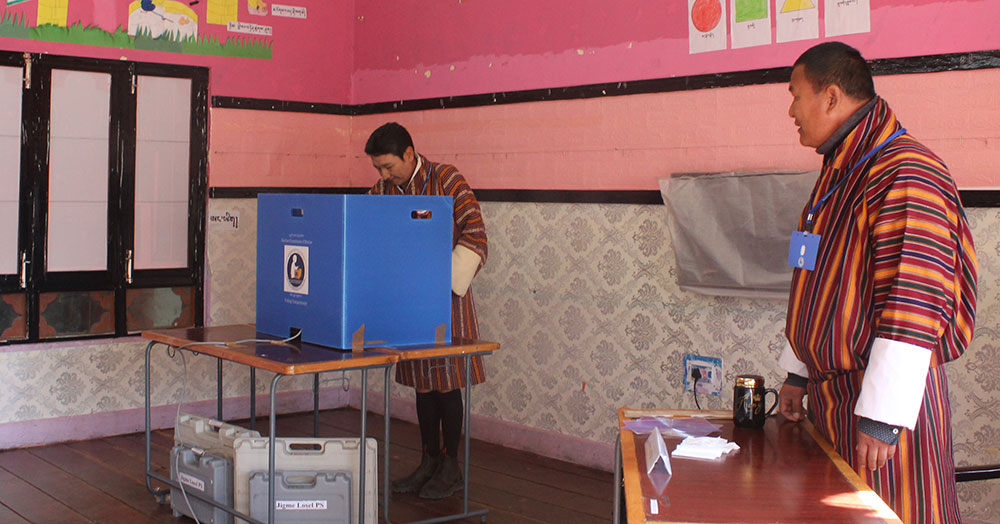Jigmi Wangdi
As an early starter in the 2023-2024 Assembly elections, the Druk Thuendrel Tshogpa (DTT), had the time to travel and introduce the new party to the electorate. Equipped with a good team, mostly seasoned former civil servants and experts from diverse backgrounds, DTT was seen as a good choice. The electorate thought otherwise.
DTT came fifth in the five-party race without winning enough to get the minimum 10 percent vote share to qualify for state funding in future elections. It won only 30,814 votes or 9.8 percent of the total 313,162 cast on November 30.
What went wrong?
DTT’s President, Kinga Tshering said that the party was able to share their unique manifesto of Sunomics and also showcase the competencies of the highly capable candidates through their public debates and forums.
“However, there could be multiple reasons and interpretations of why we did not go through the primary round. It has been a truly humbling experience and we are grateful to have come this far,” Kinga Tshering said.
DTT was the first party to register for the elections. Kinga Tshering said that no stones were left unturned, as DTT had a head start compared to other parties to carry out the familiarisation tours.
“We have been to some of the remotest chiwogs of the country like Phulabi in Zhemgang and Domkhar in Kurtoe meeting people in their working fields, homes and local festivals over the last 15 months,” he said.
Kinga Tshering added that there are a number of factors in regard to why the party lost. “There could be other multiple factors like people’s affiliation to the older political parties and perception of the new ones for voters to consider.”
As the leader of the party, Kinga Tshering said he takes full responsibility for the outcome of the primary elections.
“This is especially because the candidates are extremely competent as proven with the manifesto that they have drafted and the debates that they have performed,” he said.
However, this may not be the end of the road for DTT, as Kinga Tshering said that there are long-term prospects for DTT as a credible choice for the people of Bhutan.
“DTT has come up with a unique manifesto of “Sunomics” and also put together a team of highly professional and competent candidates. The future of the party will be determined by the Party members and the supporters,” he added.
Beyond the party, observers attribute the party failure to its manifesto, especially “Sunomics”. Common voters, many say, could not relate to the party although they received DTT with open hearts to the villages. “DTT’s manifesto sounds like a manifesto for a developed country,” said one. “The party may be too qualified for the average voter.”
Others say that the president leaving Druk Phuensum Tshogpa to form DTT could be another factor. “This is evident from the results in his own constituency,” said a North Thimphu voter. DTT came third in the North Thimphu constituency after PDP and DNT.


